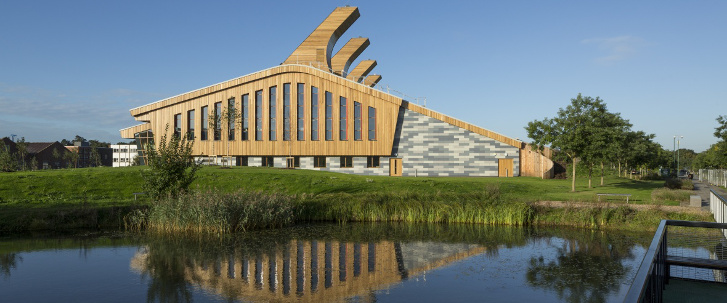
This week, environmental sustainability is high on agendas throughout the world, and I am sure many of our staff and students will wish to join the action taking place all over the country on 20 September to raise awareness of the urgent need to tackle the dangers our planet is facing.
As we develop our new University Strategy, staff and students have rightly emphasised the key importance of tackling climate change as one of our priorities, and the strategy will certainly reflect our intent to make a meaningful, significant and measurable contribution to this agenda.
At the University of Nottingham we are well-placed to address the threats to our environment in a variety of ways: through our contribution to research, through our investment decisions, through collaboration with partner organisations and through our behaviour on campus.
The University of Nottingham’s global research programme has a well-deserved reputation for supporting a more sustainable planet in developing, for example, renewable sources of energy, green propulsion systems, climate-resistant crops and a sustainable food supply.
Significant carbon reduction research activities are conducted at the University of Nottingham Ningbo China, and our Malaysia campus provides a world-leading field laboratory for research into environmental protection. I have recently had conversations about sustainability with world-leading researchers who cite our Carbon Neutral Laboratory in the UK as a model for future scientific facilities.
Our financial investments reflect our research programmes in supporting ever-greater sustainability and the University of Nottingham has fully divested from investments in fossil fuels, as well as keeping our investment portfolio under continual review to ensure it complies with our broader ethical investment policy.
The city of Nottingham has committed to be carbon neutral by 2028, and we intend to work with them as well as Nottingham Trent University through the Universities for Nottingham project to ensure that we do anything that we can to scale up our contributions through collaboration on such crucial issues as waste disposal.
Beyond our research and investments, the University is also dedicated to ensuring our daily campus activity supports sustainability. Our Carbon Management Plan aims to secure a 40% absolute reduction in carbon emissions from a 2009/10 baseline.
We encourage all staff and students to play their part in reducing impact on the environment through the University’s Get Involved and #WasteNott campaigns. Introduced in 2018/19, WasteNott will reduce the use of disposable hot drink cups by 50% by August 2020, cut plastic bottle waste by 30% by August 2020, has removed all plastic straws from our catering outlets and reduced plastic cutlery usage.
To help this happen, we have installed more water fountains on campus, introduced a 20p levy on disposable hot drinks at our catering outlets - with proceeds reinvested in waste reduction initiatives - alongside a 20p discount for reusable cups.
The University also diverts 95% of its total waste from landfill. Food waste is converted into renewable energy and biofertiliser, plastic items are recycled into other products, and other material is used for fuel at energy-from-waste plants and factories. More information about our campus sustainability programmes is posted on the Sustainability webpages.
However, there is much more we can do. In order to carry forward an ambitious agenda that allows us to build on our strengths, we are embedding environmental sustainability more strongly into our structures. For the new academic year, we are setting up a UEB subcommittee on Sustainability, which will be chaired by a Pro-Vice-Chancellor who will have this portfolio added to their role.
This committee will help us develop, prioritise and oversee projects on our campuses and in our communities to ensure that we maximise all opportunities to contribute to carbon reduction, sustainable food, waste management and many other environmental challenges. It will include experts within the University, and we will be calling out soon for applications for additional members.
At nearly every VC surgery I hold, there is a member of staff who comes to me with imaginative ideas about what we could and should do as an organisation to tackle the climate crisis. I want us to use the imagination, expertise and passion of the University community to help us decide where to put our efforts and how we can make a decisive contribution to such an important agenda.

Professor Shearer West
Vice-Chancellor
16 September 2019